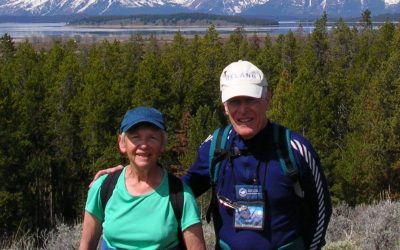CLASSICS is the study of ancient Greek and Roman cultures, and their still vibrant legacy. Many students find it a natural fit for a double major, pairing classics with philosophy, art history, English, religion, theatre arts—even biology. Available as a major or minor program of study.
Classics might seem specialized, but since it’s the foundation of all liberal education it’s as broad as it can be—grad schools and employers appreciate this education.
Go to law school or pursue disciplines such as political science, civil engineering or theatre, all founded on classical ideas.
We take regular trips to the Metropolitan Museum in New York to see its amazing collection of antiquities. If that’s not adequate, intern there. It’s been done, and we can help.
Why Study Classics?
“To read the Latin and Greek authors in their original is a sublime luxury…I thank on my knees him who directed my early education for having in my possession this rich source of delight.” – Thomas Jefferson to Dr. Joseph Priestly, January 27, 1800
Who are we to argue with Thomas Jefferson? Allow us to point out though, that, while eminently worth studying for their own sake, the Classics can also help you in practical ways.
Law
“Law schools report that by yardsticks of law review and grades, their top students come from math, the Classics, and literature – with political science, economics, “pre-law,” and “legal studies” ranking lower” (Harvard Magazine, May-June, 1998, p. 50)
Business
“…shrewd employers, including many in the City, still prefer job-applicants whose minds were formed by Aeschylus or Horace” (London Times, 11 April 1991)
Medicine
“So much of medical terminology is rooted in the Classics that studying Greek can facilitate study of anatomy for instance. But studying the Classics opens other doors that physicians tend to have closed just by the focused interest of their studies. Classics can be a vehicle for staying in touch with life – spiritual growth by reading the New Testament in its original language or cultural growth by reading the Iliad.” (Dr. Eric Dahl, Director, The University of Mississippi Student Health Service)
Writing
“It took Latin to thrust me into bona fide alliance with words in their true meaning. Learning Latin…fed my love for words upon words, words in continuation and modification, and the beautiful accretion of a sentence….” (Eudora Welty, One Writer’s Beginnings, p. 31)”It allows you to adore words, take them apart and find out where they came from.” (Theodore Geisel (Dr. Seuss), New York Times, 2 March 2004)
Technology
“If they could return to their undergraduate days, many IT workers say they would spend less time with Unix, networks and Windows and put more effort into getting to know Plato, Virginia Woolf and Pablo Picasso. Nearly 40% of IT workers said that they would major in a nontechnical subject area if they could return to college, according to a new survey…” (CNN interactive, 4 July 1998)
” I would trade all of my technology for an afternoon with Socrates.” (NewsWeek, 29 Oct 2001)
Teaching
“…the sharpest appetite is for Latin majors…Recruiters are eager to find college graduates who majored in Latin because high school students in significant numbers continue to want to study it.” (Los Angeles Times, 5 October 1999)
American History
“One of the regrets of my life is that I did not study Latin. I’m absolutely convinced, the more I understand these eighteenth-century people, that it was that grounding in Greek and Latin that gave them their sense of the classic virtues:the classic ideals of honor, virtue, the good society and their historic examples of what they could try to live up to.” (David McCullough, historian and author, interview on understanding the Founding Fathers)

